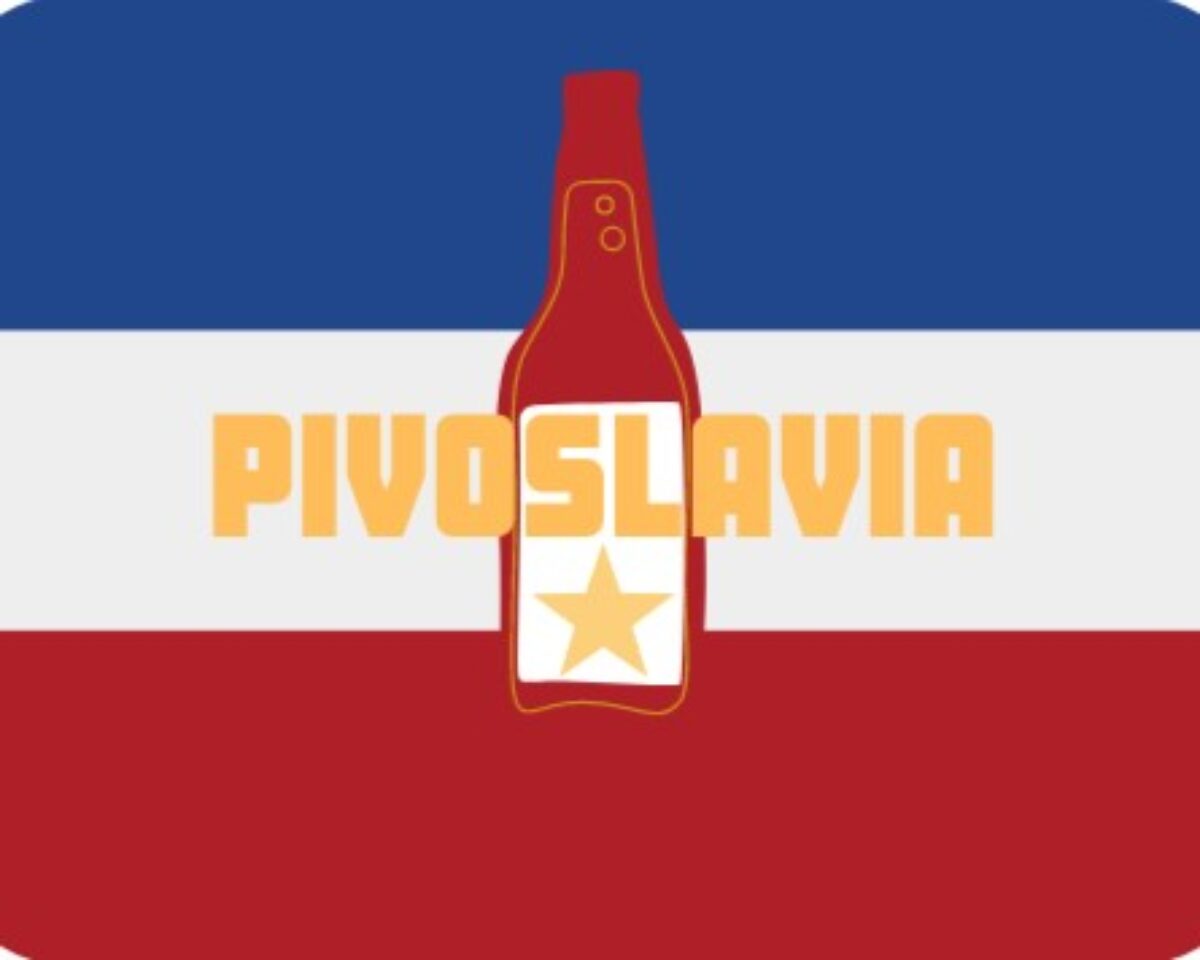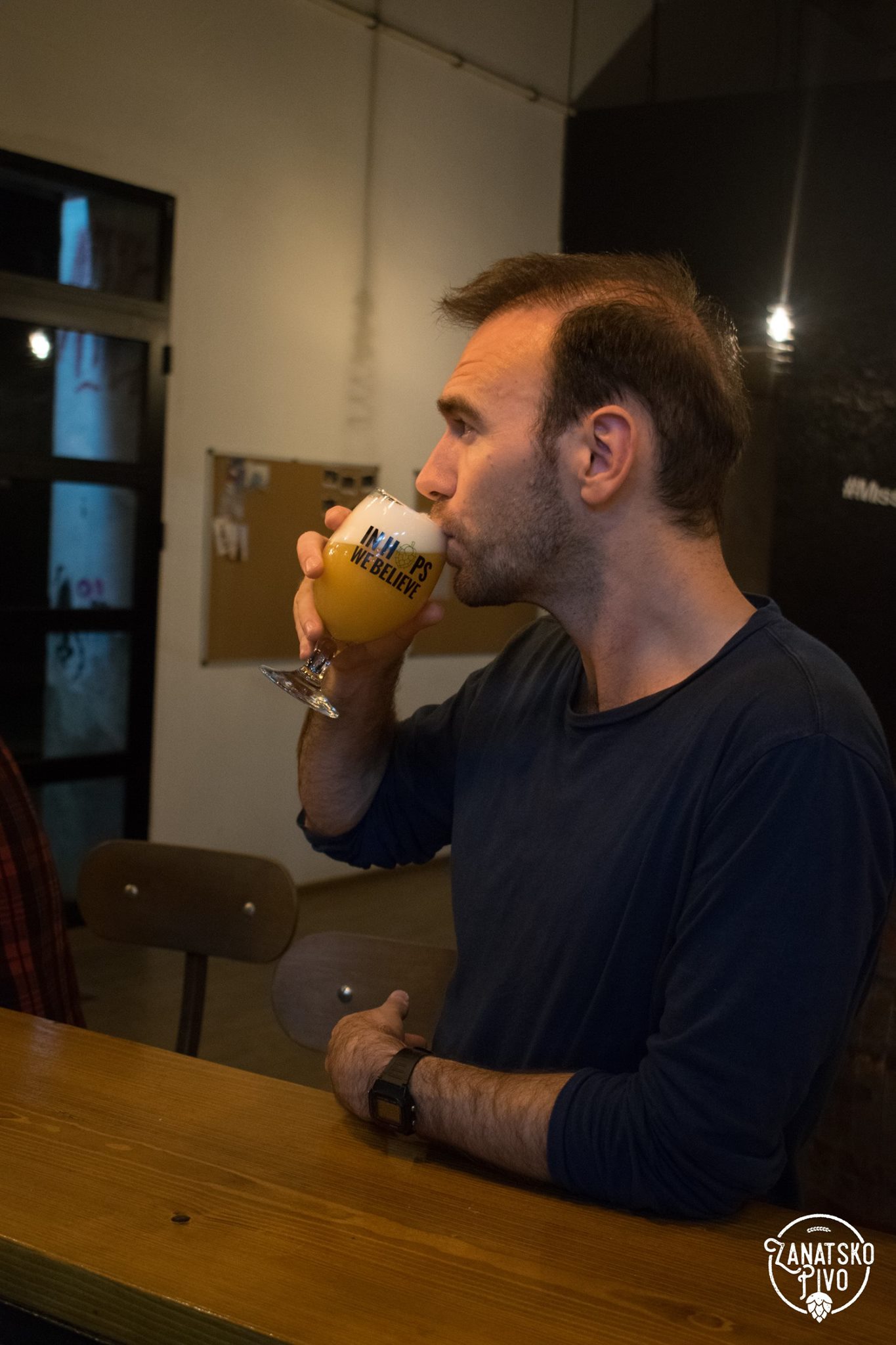How To Order Beer In Serbia (Croatia, Bosnia And Montenegro)
Many tourists come to Belgrade, Serbia and tell me they’ve already been to Croatia. They’ve passed through Zagreb and visited some of the nicest beaches. They even learned how to order a beer in Croatia: ‘Jedno pivo.’ Now, they’re ready to order beer in Serbia. It’s different, right?
Nope, ordering beer is the same. So if you order ‘jedno pivo’ in Croatia, you can order ‘jedno pivo’ in Serbia, Bosnia and Montenegro too. Add the word ‘kraft’ or ‘zanatsko’ first if you want a craft beer.
That sounds easy enough. Yet, this is The Balkans, so let’s complicate things just a little bit now. Part of why you can say the same thing in all these countries is because they were, in fact, one country before: Yugoslavia.

Pivo Was All The Same in Yugoslavia
For all practical purposes, Serbs, Croats, Bosnians and Montenegrins are the same people. But there are some key differences. Principally, it’s religion. In Croatia, they are mainly Catholic Christians. In Serbia and Montenegro, they are mostly Orthodox Christians. And in Bosnia the majority are Muslims. Of course, I am simplifying things and will have many a local tell me I’m an ignorant, idiot foreigner.
But one thing Serbia, Croatia, Bosnia and Montenegro all have in common is their language. People from these countries can communicate with each other with little problem outside of national accents and local slang. And even Slovenia and Macedonia, although their languages are different, still share over 90% of their vocabulary with Serbo-Croatian. Either way, you will always find beer here.
Think of it like the Anglo countries. Someone from the USA wouldn’t have much trouble talking to someone from Australia or England. Or a German speaker from Germany could still communicate with someone from Austria or (parts of) Switzerland. And then there are all the Spanish-speaking countries…
How To Speak Beer In Serbo-Croatian
If you’re planning to travel throughout the Balkans, here’s a list of vocabulary you can use to order beers in Serbia, Croatia, Bosnia and Montenegro. The vocabulary is divided into two lists:
-
The first list is for ordering drinks generally
-
The second list is for beer geeks who want to talk craft beer
If you are in the capital cities of Zagreb, Sarajevo or Belgrade craft bars, speaking English shouldn’t be a problem. Despite this, try sharing a few words in the local language. People will see it as a show of good faith. It may even get you free beer.
However, outside of the major cities finding people who speak English may be more difficult, so this vocabulary can be useful. Regardless of what bar you are in, remember: learning any foreign language is easier after the first drink or two.
This is how to order craft beer in Serbian, Croatian, Bosnian and Montenegrin language.
How To Order Beer in Serbia, Croatia, etc.
Zdravo/Čao: Hello. The typical greeting that literally means ‘To health,’ or the more universal ‘Ciao’ known through much of Europe.
Pivo: Beer, which is why you are here
Jedno Pivo: One beer, just to be clear
Veliki Pivo: Large beer, which is usually 0.5 Liter. If you just ask for a beer, this is the size you will get.
Mali Pivo: Small beer, which is usually 0.3 Liter. You may get some teasing for ordering a small beer.
Cena: Price, which will be next to the beers in Dinar in Serbia
Mogu li da naručim… : May I please order a…? Although you could just say ‘Jedno pivo,’ this is the polite way to ask.
Može… : A useful word which means ‘It can.’ However, it also means ‘I can,’ ‘You can,’ ‘It’s possible,’ and more. This can also be used to informally order, as in, ‘Moze jedno pivo.’
Hvala: Thank you. Always thank your bartender
Hvala puno/lepo: Thank you very much
Točeno: Tap beer. The best way to drink beer is fresh on tap
Čaša: A glass, as in a glass of beer. If you see beer on tap, it should be served like this
Flaša: A bottle, as in a bottle of beer. Not all beers are served on tap.
Bokal: A pitcher. This isn’t common yet in The Balkans, but occasionally you will see tap beer available in one Liter or two Liters.
Žirafa: Literally, giraffe. This is what they call a tower of beer, which is usually 5 Liters
Živeli: Cheers! The most important word you should learn.
Voda: Water. Drink water often when you are drinking beer.
Koliko košta?: How much does it cost?
Račun: The bill/check. Don’t forget to pay, please
Kaš ili kartica?: Cash or (credit) card? Your server will ask this when it’s time to pay
Bakšiš: Tips. Be nice and tip your bartender
Još Jedno… : One more… When with friends, this usually means more than one beer.
How To Order Craft Beer In Serbia, Croatia, etc.
Zanatsko Pivo: Craft beer, although it can also be Kraft Pivo
Domaći Pivo: Homemade beer, which is typical if the beer is only made on site or if it’s from a homebrewer
Da li imate…?: Do you have…? When you ask for a specific kind of beer.
Svetlo; Light, as in the color. Anything light colored, from pilsners to IPAs.
Tamno: Dark. Anything from dark Euro lagers to barrel-aged stouts
Crveno: Red. Amber ales and such
Belo: White. Often this is used for German-style Weisse beers
Mutno: Blurry/Cloudy. Often describes Hazy IPAs and Weisses
Gorko: Bitter. Describes most bitter hoppy IPAs, but also bad bitter taste
Slatko: Sweet. Fruit beers, but also a typical complaint from people not used to IPAs
Kiseo: Sour. Do you like Belgium beer?
Hmelj: Hops. One of the ingredients that makes beer
Slad: Malt. Another important ingredient in beer
Kvasac: Yeast. And finally to make beer…
Pšenica: Wheat. Another name for German-style Weisse beers
Kakav je ukus?: How does it taste?
For a tour of the best craft beer bars in Belgrade click: here


